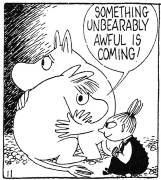|
Hello I used to post here sometimes a long time ago, but I am a DVM in the US (hopefully not for too much longer) finishing up a residency in Neurology/Neurosurgery. Good to see some new people around. I probably can't contribute a ton to helping people with routine medical stuff since I have effectively expunged most non-neuro knowledge from my brain after passing the ACVIM General boards a few months ago. But HI!
Sekhmet fucked around with this message at 16:37 on Jul 5, 2021 |
|
|
|

|
| # ? May 23, 2024 14:08 |
|
YourCreation posted:Honey or codeine. Most dogs with CHF don't cough unless their left atrium is huge, so he could actually have some form of allergic airway disease or collapse (trachael collapse, bronchomalacia, etc). Cough suppressants like the ones I mentioned should be safe. If you're in the USA I think butorphanol liquid is also available. His left atrium is huge. Vet would have caught something like airway diseases- she knows about the coughing and he had a spell the last time he was in a month ago. He's far enough into this that I'm not sure how much time we have left and is on a mild anti-histamine already. I don't want to mess with real medications too much, but he'll go loving bonkers for the honey. Thanks!
|
|
|
|
I'm going to be taking our dog back from my ex temporarily until her living situation is better for a dog, but the thing is I live several thousand feet higher than my ex. I'm concerned about altitude sickness, is there a known way to mitigate it in dogs? I know in humans it's lots of electrolytes, more fluids (no, even more than that), and extra sugar and carbs, but I'm not sure what I can do for the dog. I don't know if gatorade/pedialyte is safe for dogs, I'm not sure what to feed her aside from her normal food. I figure she will be tired for a few days at least, I just want to make sure she doesn't get really sick.
|
|
|
|
And hopefully final update: I called the vet this morning and they said don't worry about bringing him in unless he starts limping again.
|
|
|
|
This morning my dog (~six year old Havanese-ish, no known health problems) threw up several piles of what looks like fettuccine. It did not look like the spaghetti-style worms that come up when you google "roundworms," but there is no way she ate actual pasta, so I'm assuming these are some sort of worms. I didn't think to get a picture before cleaning it up, but it looked remarkably similar to the photos posted in this thread https://www.dogforums.com/threads/a-mystery-the-case-of-the-fettuccini-puke.61446/ but the person there never posted a followup. She takes Heartgard (not Heartgard Plus) every month; her last dose was yesterday. Other than the vomit she seems to be fine; walking around, drinking water, taking treats. Should I take her in? Wait to see if she does it again? Edit: She seems to be doing fine: eating, sleeping, went on a long walk this evening with no complaints. Hopefully it was just a fluke. Well, not a literal fluke. Lester Shy fucked around with this message at 04:11 on Jul 9, 2021 |
|
|
|
Have you compared it vs tapeworm?
|
|
|
|
Lester Shy posted:This morning my dog (~six year old Havanese-ish, no known health problems) threw up several piles of what looks like fettuccine. It did not look like the spaghetti-style worms that come up when you google "roundworms," but there is no way she ate actual pasta, so I'm assuming these are some sort of worms. I didn't think to get a picture before cleaning it up, but it looked remarkably similar to the photos posted in this thread https://www.dogforums.com/threads/a-mystery-the-case-of-the-fettuccini-puke.61446/ but the person there never posted a followup.
|
|
|
|
My cat gets once-monthly constipation where he'll start yowling and licking at his anus and he'll puke a few times. After about an hour or two of us worrying about him and monitoring him to make sure he doesn't puke, he usually ends up leaving a very large stool in or around his litter box and is back to normal for the next 30-45 days until it happens again. Is there anything that can be done besides waiting it out to help him when he's having an episode like this? And is constipation at this rate something to worry about? We've brought it up at his vet checkups (and took him to the emergence vet first time it happened about a year ago) and the recommendation was to just give him miralax and a high fiber dry food formula for constipation (which had its own issues because he really really liked that food and ended up leaving skid marks all over the rug, so it's no longer an every day addition).
|
|
|
|
Plank Walker posted:My cat gets once-monthly constipation where he'll start yowling and licking at his anus and he'll puke a few times. After about an hour or two of us worrying about him and monitoring him to make sure he doesn't puke, he usually ends up leaving a very large stool in or around his litter box and is back to normal for the next 30-45 days until it happens again. Yeah, miralax (unflavored) is good; my two get 1/8 tsp in their wet food twice a day. For fiber, get a can of pumpkin pie filling (note: only ingredient should be pumpkin) and mix some of that in your cat's normal wet food. Like, I can't give one of my cats the pumpkin because it's too much fiber for her, so measure what you give and see how your cat deals with a small amount to start.
|
|
|
|
Late update to above, but I ended up taking him into the vet the next morning since he hadn't passed a stool overnight and they manually removed his rectal blockage. We're adding the fiber dry food back to his diet, skid marks be damned, so we hopefully don't have to deal with the blockages again.
|
|
|
|
Have any of you vets on here even been sued or had a complaint lodged against you with your state licensing board? If so, would be curious to chat via PM.
|
|
|
|
Ive been on an emotional roller coaster ride with my dog this week. She went in for a checkup and our normal vet handed me a vial of blood and an ice pack and said get to the ER as soon as you can. We made it to the ER and her PCV value was at 16. She got a blood transfusion 3 days ago and her levels went up to 26. In today's lab result she was up to 32. We did an ultrasound and they could find no internal bleeding. All of the tests for various diseases were apparently negative as well. Up until we went to vet we saw no signs other than lethargy which we blamed on the high summer heat. I'm trying to remain hopeful. When we left the ER they started treating her for a gastro bleed on the chance that the ultrasound didn't catch anything. The fact that her levels have gone up a little bit makes me think it was an ulcer they didnt catch. But the waiting has been awful. I've been trying to be strong for my wife, who has cried her heart out. Shes also due with our first child this Monday, further complicating things... I guess Im coming here for a reality check. My dog is just about to turn 8 and has been relatively healthy in her life. I dont want to put her through a bone marrow biopsy if its a bone marrow issue, that would only confirm she has to either have life long transfusions or needs chemo both of which sound awful and I think would make her miserable and inactive. If her levels go down tomorrow, they will start treating her with steroids hoping that helps. If that doesnt work I fear I have to put her down. Am I approaching this realistically? Am I being to negative? Also, picture of the little turd: 
|
|
|
|
I have a 5yr old 10lb mutt of some sort (shitzu, terrier, maltese are all common thigs) that injured herself at the dog park last thursday. She was chasing a dog, cut a corner and ran full speed into another pup that resulted in her popping her knee and she has a medial luxating patella now (knee cap slides in, knee slides out) on a hind leg. The vet did xrays and performed a movement test and graded it as a Grade 3, which is a chronic issue. The vet mentioned surgery, but i took her in a day after the injury and the vet mentioned that non invasive solutions are always preferred and many dogs just manage this issue, although the Grade 3 means it will be a chronic degenerative thing her entire life and the knee cap is generally out of alignment. However, while researching this, it seems common that the longer you wait to perform surgery the more sigificant the long term effects are as the cartlidge wears down, the groove on the bone wears down and she slowly moves closer to bone on bone as well as further risk of an ACL tear and other hip/joint issues. My dog seems relatively ok, but its only been 3 days since the injury and i have not seen her nap at all during the day anymore. She sleeps in bed with me and whenever i check her her eyes are open which makes me very sad as she used to snooze quite a bit and this change in behavior concerns me. Am I missing something in not pushing for near immediate surgery here? It seems to be a relatively common injury with a high success rate for the surgery. I'd prefer to have it done while she is young, the knee is not deformed and she still has cartidgle instead of addressing this and more later on in life say in 5 years and she can't bounce back quite as well.
|
|
|
|
Waroduce posted:I have a 5yr old 10lb mutt of some sort (shitzu, terrier, maltese are all common thigs) that injured herself at the dog park last thursday. She was chasing a dog, cut a corner and ran full speed into another pup that resulted in her popping her knee and she has a medial luxating patella now (knee cap slides in, knee slides out) on a hind leg. The vet did xrays and performed a movement test and graded it as a Grade 3, which is a chronic issue. The vet mentioned surgery, but i took her in a day after the injury and the vet mentioned that non invasive solutions are always preferred and many dogs just manage this issue, although the Grade 3 means it will be a chronic degenerative thing her entire life and the knee cap is generally out of alignment. However, while researching this, it seems common that the longer you wait to perform surgery the more sigificant the long term effects are as the cartlidge wears down, the groove on the bone wears down and she slowly moves closer to bone on bone as well as further risk of an ACL tear and other hip/joint issues. If money is a concern, it's a very common issue in small breed dogs that honestly rarely causes issues outside of occasional discomfort. She will have a long happy life either way.
|
|
|
|
Hello vets! Small question. I have a 11ish year old beagle (rescue, approximate age). Two years ago the vet caught a slight heart murmur and a followup ultrasound showed slight enlargement of the left ventricle. Since then she's been on enalpril, and the last 3 vet appts showed no progression of the murmur. She just had her semi-annual appt and to the vet's surprise the murmur is noticeably decreased. She's due for a teeth cleaning, and as a precaution he wants to bring in a vet with more cardiology experience and redo the ultrasound just to make sure its safe to put her under. Is there anything we need to be particularly concerned about in terms of anesthesia risk? This seems like a good, cautious approach to me, but should I be more cautious? I am not concerned about the cost at all. She has no other health problems and is not overweight.
|
|
|
|
Upgrade posted:Hello vets! Small question. I have a 11ish year old beagle (rescue, approximate age). Two years ago the vet caught a slight heart murmur and a followup ultrasound showed slight enlargement of the left ventricle. Since then she's been on enalpril, and the last 3 vet appts showed no progression of the murmur. She just had her semi-annual appt and to the vet's surprise the murmur is noticeably decreased. She's due for a teeth cleaning, and as a precaution he wants to bring in a vet with more cardiology experience and redo the ultrasound just to make sure its safe to put her under. Is there anything we need to be particularly concerned about in terms of anesthesia risk? This seems like a good, cautious approach to me, but should I be more cautious? I am not concerned about the cost at all. She has no other health problems and is not overweight. Not the worst idea in the world to have a repeat echo two years on. There's no indication for your dog to be on the enalapril so hopefully a more cardio oriented vet will realise this and stop it. Arguably doing another echo shouldn't change the anaesthesia plan - they could just use a more mitral valve disease friendly protocol regardless.
|
|
|
|
Sounds good. She initially was on a grain free diet but got diagnosed right when those stories hit and we switched her off. Iíve been doing some reading thanks to another helpful vet and apparently in many of those cases there was recovery with a diet switch which would explain the murmur improving.
|
|
|
|
Hi vet thread: I made a thread here about what happened to my cat last week. If anyone could provide their thoughts, I'll be indebted to you. https://forums.somethingawful.com/showthread.php?threadid=3975675
|
|
|
|
My pup has been scheduled for surgery on her luxated patella with a board certified surgeon who specializes in small dogs. Her condition actually worsened and she now has a grade 4 medically luxated patella. I've been working on not jumping or getting on and off the couch. I've also removed the stairs I had up to my bed and I'm trying to teach her to raise a paw to get up by treating. Kiki has never been crated in her life. I have a 1/1 with a den. My bed is raised and she can not jump on it, but her normal perch is on the L part of my sectional where her bed stays. Apart from moving the bed, which I've done with literally no change in behavior she just sprawls out where it used to be, what can I do in the interim two weeks to 1. Begin building behaviors that will help during her recovery? 2. What should I be aware of with a highly active dog in recovery? I know she can't stand on her hind legs to look out the window in the car, no jumping at all, no sprinting, walking only for potty, take her out and sit her down somewhere to help with boredom, invest in sniffle matts or brain games , no horseplay, and keep her standing in the apartment to a minimum as well. What else can I do or should I be aware of? I'll of course be speaking with the surgeon and googling but id appreciate any guidance here. Also as a an aside, I'm a big idiot who does MMA and grapples and I put my dining room set in storage at the start of the pandemic and laid down padded rubber no slip matts in my den that I'm considering making her area and leashing her to a table so she can't hop up and down and such and than carrying her out to the balcony to lay in the sun ocasionally. Good or bad idea here?
|
|
|
|
My pug had to be put down this weekend, and while I was 100% certain it was necessary (as did the vet who performed the procedure) lingering doubts are beginning to set in. I want to talk out the facts and see if there's anything I missed. Oscar was sixteen, and for the last year or so his back legs began weakening. At first this seemed like the hip problems you'd expect but over time it became apparent this was something else, his spine hunching in a very particular way. When his condition worsened to the point that he had to be carried up and down stairs, his legs swayed behind him, and he began having problems with incontinence, I set up a vet visit and looked up his symptoms online. Everything pointed to degenerative myelopathy, a condition with no cure that only worsens to the point that a dog becomes immobile and their organs shut down. It seemed like his symptoms lined up with the mid-late stages of this condition and I was worried he was about to take a turn for the worse. Of course I'm just an idiot with a computer, so I asked the vet if it could be degenerative myelopathy. She was very nice but didn't directly answer yes or no, or even indicate that she was trying to get a clear picture. Instead she examined each symptom as its own thing and gave him joint-strengthening chews and gabapentin. I specifically said "So it's not degenerative myelopathy?", explaining how horrible the condition sounded and telling her how relieved I felt that these were just relatively minor problems that could be treated. She once again didn't answer directly, smiling and telling me to make sure he exercised his back legs to build up strength. As soon as we got home Oscar began stumbling. At first I assumed it was the excitement of being back home after the vet visit. Then his back legs completely gave out. He began whimpering. He could only stand up with my help then drag himself forward a few feet before falling. In spit of this he was restless and kept trying to get up. He hadn't taken any of his medicine yet, so this wasn't a side effect. In fact, the gabapentin seemed to help somewhat that night, but he was clearly falling apart. In hindsight that vet visit didn't feel right so I took him to another vet, who peformed the euthanasia after looking at his records and his current state. I was so consumed with Oscar's condition and saying goodbye to him that I didn't ask about all the little things that had bothered me. Does such a rapid decline make sense? He was a little homebody that didn't like trips, so in my mind that little bit of stress brought on a decline that was already going to happen. My mind keeps loving with me with thoughts like, "Maybe he just stepped on something that made his already-wobbly back feet tender and you overreacted". Corin Tucker's Stalker fucked around with this message at 14:26 on Aug 9, 2021 |
|
|
|
Neighborhood / stray cat that I feed has something growing in her eye. Cyst maybe? She doesn't like to hold still for pictures but here's the best I could do. http://imgur.com/a/klaXChM I think it's growing on her inner eyelid, the nictitating membrane. She's a sweetie but, apologies, I can't see spending more than a couple hundred on her, if that would be worth it. Her general attitude is fine. Thoughts?
|
|
|
|
Corin Tucker's Stalker posted:Does such a rapid decline make sense? He was a little homebody that didn't like trips, so in my mind that little bit of stress brought on a decline that was already going to happen. My mind keeps loving with me with thoughts like, "Maybe he just stepped on something that made his already-wobbly back feet tender and you overreacted". Sorry about your little guy CTS. Your little guy paraparesis (pelvic limb weakness) and that could be caused by a number of things. Degenerative myelopathy is one possibility, but for a Pug gentleman of his age the diagnosis is probably unimportant. There are a number of disease processes that could cause his signs (intervertebral disc disease, any number of myelopathies, meningitis, cancer). What's clear is that he appeared to have a deteriorating quality of life, some orthopaedic/spinal pain. Most animals will compensate for disease until they're simply no longer able to do so. We might not notice the little day by day changes and then all of a sudden they can't walk. I think you made the right decision saying goodbye to him. It's always a terrible decision to have to make, but better then than after he was very painful and had lost all of his dignity. There is a pet loss support group that you might consider joining - the community is really supportive: https://www.facebook.com/groups/818916688187154
|
|
|
|
regulargonzalez posted:Neighborhood / stray cat that I feed has something growing in her eye. Cyst maybe? She doesn't like to hold still for pictures but here's the best I could do. No idea what this is to be honest. Asked our ophtho resident and they're not sure either. If there's no redness/squinting/discharge I would do nothing and see what happens. If it gets worst then bring said kitty for evaluation.
|
|
|
|
I appreciate you asking around about it. I'm going out of town for a couple of weeks but my mom will stop by to get the mail and feed the neighborhood cats, I'll have her keep me up to date.
|
|
|
|
regulargonzalez posted:I appreciate you asking around about it. I'm going out of town for a couple of weeks but my mom will stop by to get the mail and feed the neighborhood cats, I'll have her keep me up to date. I had ticks (in other places, mind you) look exactly like this on my cats.
|
|
|
|
So, I have two 2 year old Siamese, and yesterday morning one of them was in a really funny mood. Just darting around everywhere with no rhyme or reason, and caused a panic when he disappeared (he got into the cellar and under the floorboards). After retrieving him, he seemed very withdrawn and wanting to hide places and his skin is twitching all over. We immediately assumed fleas and put flea treatment on him. +36 hours later and painstaking flea combing + visual inspection, I can't see any fleas at all. His sister is also completely unaffected, 100% normal, despite a lot of close proximity (they sleep together like peas in a pod.) After more symptom googling, it seems like he fits the pattern for 'Feline Hyperesthesia Syndrome' to the absolute letter. He'll be normal, then suddenly start dashing around like he's been bitten in the rear end, back muscles rippling, compulsive licking around the tail. He flinches and runs when we touch certain points like near the tail or the ear. No extra scratching or anything which I would assume would be normal with fleas. He fits the age and breed profile for being at risk for this as well. Going to go to the vet tomorrow, but does anyone have experience with this? He seems absolutely miserable and his bursts of manic energy and panic are almost constant. He was always a very 'jumpy' cat when touched unexpectedly, but this has gone from 0-100 overnight and it's horrible to watch. Praying that I'm just incompetent at spotting fleas or something or it's something else eminently treatable, but I'm freaking out about this being what's wrong/what are we going to do.
|
|
|
|
Hi everyone, I don't know what to do about my foster cat. He is about 7 and has hyperthyroidism. At his last check-up at the vet his daily dose of thyronorm was increased to 3.5mg twice a day with another check-up supposed to be three weeks later. That was a month ago. The cat rescue organises all vets appointments, and has a couple of specific practices they use. Long story short, they forgot, weren't responding to my messages, and I ended up ringing round various local vets trying and failing to sort something. When the medication ran out I sent a photo of the empty bottle to the cat rescue, and it turns out they thought he'd already had his thyroidectomy, which is why they had been taking their sweet time. So, what, if anything, can I do for the hyperthyroidism? Is there anything available without prescription that could help? There's still no date for the vet so it'll probably be at least a week or two more.
|
|
|
|
|
There is an iodine free diet called y/d by Hills/Science Diet/Science Plan that oyu may be able to get in the mean time. Otherwise, it's prescription medicine only. For such a young cat it's unusual to have hyperthyroidism, but maybe they're older than you know if they're a rescue. You could look into radioactive iodine (I-131) - it will be far cheaper in the long run.
|
|
|
|
Thanks, I'll look into getting that food. And yes, he could be older. We think he was abandoned by his previous owners when they realised he had a chronic illness because he was clearly a family pet for many years.
|
|
|
|
|
Three years ago, I took in two axolotls from a relative who no longer wanted them. She'd gotten them off Craigslist and had them for about a year, but couldn't keep up with weekly water changes and her cat kept trying to get them. They used to come to the top to suck air all the time, so it wasn't a healthy environment for them. Falcor (albino) and Toothless (black melanoid) had withered gills when I got them, but otherwise seemed healthy. I house them in a half-full 90-gallon aquarium with a chiller, feed them frozen bloodworms and home-grown earthworms from my little indoor worm farm I made just for them, perform regular partial and occasional full water changes, and I've had no problems with them at all up until about three months ago when Falcor began swelling up. I know there are multiple causes of bloat in axolotls, but he wasn't floating; he was just getting really fat. I checked around and there are literally no amphibian/reptile/exotic pet vets anywhere within several hours of me. As Falcor never lost his appetite and was as active as usual, unfortunately I didn't do poo poo about it until we were were going to be away for a week. We fridged him while we were gone, and since no one would be there to do daily water changes we put an air stone in his container to make sure he had oxygen. I know they don't like fast-moving water, but I had no one to come care for him, and I honestly didn't think he'd survive anyway in his condition. When I got home, he was still alive and well, but hadn't passed his blockage or whatever the problem was. He was as fat as ever. I took the bubbler out and kept him in the fridge for another week, doing daily water changes, but nothing changed with him. Eventually I figured he might as well go back in the tank since fridging wasn't making a difference. It took another five days or so to change out his water gradually to tank water, then move him back. Once he was in the tank, though, he started floating. After a few days of that, in which he looked totally miserable, I decided to try fridging again, since I'd be home this time to change his water and keep an eye on things. This time he was in there for more than two weeks, again with zero improvement. I finally decided he might as well go back into the aquarium again; after prepping him for a few days, I finally put him back in tonight. He went to the bottom and hung out, but when I checked later he was floating. I saw him take a big gulp of air from the top and then sink down to the bottom, where he seemed okay. I just checked on him again after about an hour and he's floating again. What the hell can I do? I don't understand how he's even alive--he hasn't eaten in at least a month, possibly longer. He looks so uncomfortable. I have nowhere to take him for vet care, and online solutions suggest either fridging or euthanizing. Is there anything else I can do for this poor guy at this point? If I just let him live in the tank in the condition he's in, is there any danger to Toothless if it's a bacterial infection or something? I tried to attach photos but I can't for the life of me figure out how. I haven't posted to this site in many years, so apparently imgur no longer works for images? Edit: Never mind. He died last night. Troublemaker fucked around with this message at 20:07 on Aug 28, 2021 |
|
|
|
Wondering if anyone could tell me what's up with my guinea pig. When I had her out of the cage last night, I noticed she had two little skin tag looking things on her abdomen (and I don't mean her nipples). They look exactly like she grew two misplaced extra nipples that just barely peek out from her fur. Her appetite and activity level are same as ever, so they don't seem to be bothering her. Any idea what they could be? Trying to look for answers online netted me nothing except for people being bamboozled that yes, guinea pigs have nipples. I also looked over my other pig, and didn't see anything on her.
|
|
|
|
Sekhmet posted:Hello I used to post here sometimes a long time ago, but I am a DVM in the US (hopefully not for too much longer) finishing up a residency in Neurology/Neurosurgery. Good to see some new people around. I probably can't contribute a ton to helping people with routine medical stuff since I have effectively expunged most non-neuro knowledge from my brain after passing the ACVIM General boards a few months ago. But HI! Welcome back! We took our cat in for a dental yesterday and the vet noticed his heart rate dropped to around 80 while under anesthesia. They did a bunch of cardio tests and sent it off to a cardiologist for review and they don't think there's any heart issues going on, his heart rhythm was normal just with long gaps between beats, and the cardiologist suggested he may just have a vagal tone that responds to anesthesia? Our vet said it's possible but she hasn't seen a cat with that in her 32 years of practice and brought up how mellow he is. He's an incredible chill cat, we'll catch him just zoning out sitting and staring at nothing for hours. Not like, laying down sleeping, just sitting on the counters looking at seemingly nothing. If it is a brain lesion or old trauma it seems to not have a material affect on his quality of life, our vet's plan was to just wait until the next time he has to be put under anesthesia and give him atropine? before since that would prevent the anesthesia from affecting his vagal tone, but even trying to Google this for more information yields no results. Is this something that would be in your wheelhouse? They also thought it might be gastrointestinal related since that can apparently affect the vagal nerve so we're gonna send that GI panel thing to Texas A&M to check, but he doesn't have any gastro symptoms as far as we can tell.
|
|
|
|
If your cat had bradycardia during anaesthesia but is complete normal every other time then further testing will probably be unhelpful or unnecessary. Are they sure they didn't give him some medetomidine/dexmedetomidine? Provided his blood pressure, etc, were normal this isn't a huge deal.
|
|
|
|
I think the vet said the anesthesia they used was buprenorphine, propofol, and isoflurane, but his heart rate didn't drop until the isoflurane? She also said she only had to give him like 1/4 to 1/8 of the isoflurane they normally use, I think she said they sustained him at 0.5% isoflurane when they normally use 2-3%?
|
|
|
|
Hi, me again, and my hyperthyroid foster cat. About ten days ago he had a routine vet appointment for his blood tests. Yesterday the cat rescue phones me to say that the vet believes he has thyroid cancer. The dosage of medications has tripled and he will need to go back to to the vets in two weeks. That's all the information I have, which is all second or third hand, because the cat rescue deals with everything veterinary. What can I expect? As far as I know, the plan is still to go ahead with the thyroidectomy. In a possibly related noted, he's definitely been off these last couple of days, which isn't the medication increase because that started today. He's still using the litter box, grooming himself, and drinking lots of water, but he's eating less and is quieter. He seems tired, but if his thyroid meds haven't been working then he probably feels wretched.
|
|
|
|
|
Reik posted:I think the vet said the anesthesia they used was buprenorphine, propofol, and isoflurane, but his heart rate didn't drop until the isoflurane? She also said she only had to give him like 1/4 to 1/8 of the isoflurane they normally use, I think she said they sustained him at 0.5% isoflurane when they normally use 2-3%? For what it's worth though, I don't know that I'd be so quick to point specifically to the iso as the issue. Saying the heart rate didn't drop until they put him on iso is potentially a little misleading (not in an intentional or malicious way of course, your vet sounds very responsible and competent). The bup likely was given first, as a premed. They may have taken a heart rate at some point between that and the propofol, but I wouldn't necessarily count on it. After that, they'd place the catheter, induce with propofol, intubate, and start the iso. The time between pushing the propofol and starting the iso was probably 30 seconds or so, during which he likely wasn't hooked up to an ECG. Iso *is* the one of those 3 drugs that affect heart rate the most to be fair, but an adverse reaction to any of the 3 (or a combination thereof) could be blamed. Which is all just to say that a different premed/induction protocol could give much different results, even with iso for any future anesthetic event. Slugworth fucked around with this message at 12:10 on Sep 4, 2021 |
|
|
|
Thanks for the replies, the vet made it sound like it wasn't something to worry about, just something to have on file for the next time he needs anesthesia, it was just surprising to me that I couldn't find anything online about anesthesia affecting feline's heart rate. Usually when something is going on with our cats even if it's rare condition I can at least find some research on it to help me understand it better.
|
|
|
|
This is Gizmo. Recently, we took Gizmo for a dental cleaning which couldn't be done because his kidneys are showing their age (he's 12). He's now on Hill's k/d + Mobility with a strict no-other-protein diet. Gizmo is not happy about this because his preferred snack (by far) is a simple bully stick. We had intended to discuss this with his vet but Ida happened, we're evacuated to a hotel, and not likely to see his regular vet for a while. Is there something out there that's kind of bully-stick-adjacent that he can grind his teeth on for a while with no protein? We did try a Nylabone but he was not amused.
|
|
|
|
We give our dog Whimzees, they're dental stick things that are mostly potato starch and glycerin, only like 1% protein. https://www.chewy.com/whimzees-brushzees-grain-free-natural/dp/49771
|
|
|
|

|
| # ? May 23, 2024 14:08 |
|
I was walking our dog a couple sundays ago and there was a stray puppy (approx 6 months) at the park, we took her in to our family vet the next day and they did x-rays and it looks like she got hit by a car or something a month ago. We got her in to see a specialist today, and both vets seem surprised that she was walking. She's got: Mid diaphyseal fracture of all of the right metatarsals, chronic - healing as malunion with lateral displacement Femoral neck fracture, left, chronic Femoral neck + greater trochanter fracture, right, chronic - minimally displaced We've had her on pain and anti-inflammatory meds since the first vet visit and she's still been able to get around, but we're limiting how much activity she gets. They said surgery to reset the right metatarsals would be pretty complicated or potentially end up as an amputation, and they didn't expect it to cause and long term issues, so they recommended against that. We're gonna do an FHO for the left leg, but they don't think we'll need to do one for the right, which I guess means that even though the femur is broken it's not grinding against the hip? Does this all seem on the up and up, or is there something else we should be asking about? Looking online the prognosis for an FHO seems good, so I'm hoping we can get her to pretty much normal quality of life.  
|
|
|
































